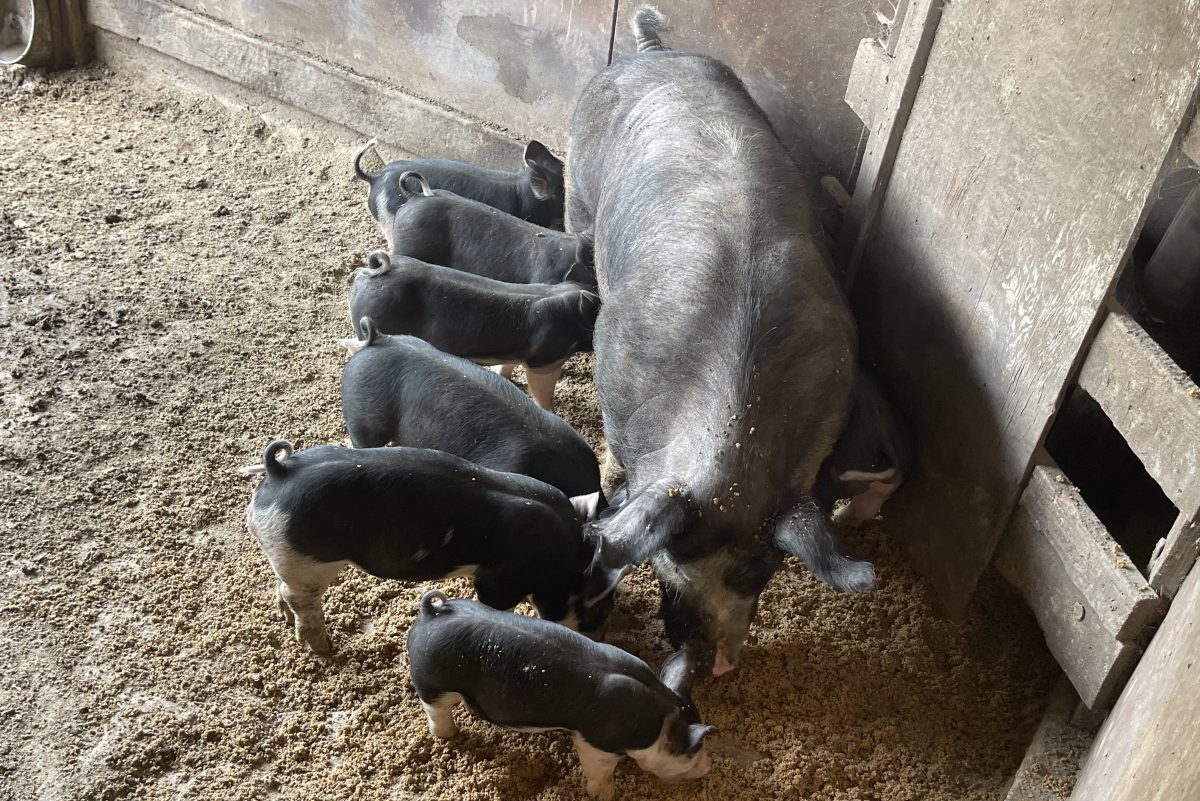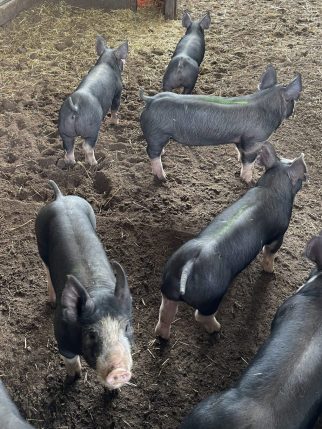Supreme Court Upholds California’s Prop. 12
California Animal Welfare Law Wins Against Factory Farms

In a ruling that split the party line, the Supreme Court upheld California’s Prop. 12 with a 5-4 vote last week. Hailed as a revolutionary victory by animal activists and a death sentence by factory farmers, the court’s ruling — in a case involving livestock kept in very small cages — is seen as supporting the power of states to enact rules that have effects beyond their borders.
Proposition 12, “Animal Confinement Initiative,” passed with 61.2 percent of the vote in Santa Barbara County in 2018, only to be tied up in court ever since. The law requires farms to comply with set spatial standards for calves, chicken, and breeding pigs, some of the most confined animals in factory farming. Traditionally, chickens are kept in wire “battery cages,” calves raised for veal are confined to solitary standing-room pens, and mother sows are relegated to “gestation crates” where they spend most of their lives.

The initiative requires that these animals are able to turn around and extend their limbs, while also closing the crucial loophole that led to the lawsuit — products that don’t comply with these directives are prohibited in California, including products from out-of-state farms. In terms of animal welfare, it’s no great leap; in terms of animal welfare protections in the law, Prop. 12 is unprecedented and has far-reaching influence.
California is a major market for producers in all 50 states. Most states lack these types of regulations and none certainly go as far as Prop. 12, which proponents acknowledged would substantially increase costs. The new standards set by California’s voting public will change the industry at large if they want to keep selling to the nation’s most populous state.
Unsurprisingly, out-of-state producers viewed Prop. 12 as an encroachment, indirectly forcing them to change how they run their business. Adding insult to injury is the fact that California produces little pork itself. The National Pork Producers Council and the American Farm Bureau sued California, arguing that the state was imposing its morals beyond its borders and putting out-of-state producers at a disadvantage, violating the “commerce clause.”
The Supreme Court disagreed with this argument. In the majority opinion, Justice Neil Gorsuch wrote, “Petitioners here disavow any discrimination-based claim, conceding that Proposition 12 imposes the same burdens on in-state pork producers that it imposes on out-of- state pork producers.” Essentially, since Prop. 12 discriminates equally against both in-state and out-of-state producers, there is no illegal economic protectionism at play. Gorsuch also pointed out that the law passed overwhelmingly in California and that its citizens have a right to decide what is sold in the state.
Many view the ruling in Prop. 12 as a taste of state’s rights issues to be explored in coming judicial years. Among the cases this term is a lawsuit from generic mifepristone manufacturer GenBioPro against West Virginia’s near total ban on the abortion pill. Similar to the Prop. 12 lawsuit, the pharmaceutical company argues that the state is interfering with commerce and that federal approval should preempt a state’s prohibition.
As for Santa Barbara pig farmers, they’re unconcerned about the impacts of Proposition 12. Randy Jones, the farm manager at Pork Palace in Gaviota, explained that most of the operations in Santa Barbara and its neighboring counties are small and have no need for the kind of factory conditions outlawed in Prop. 12. “I have 25 sows,” he said of his farm, “and that’s probably the biggest around here. It should not impact us at all, and I have no problem with the law. I don’t like to see pigs in crates their whole life.” said Jones.
The real issue for Prop. 12 may be compliance, Jones said: “California is going to have to figure out ways to enforce this — they probably half-expected it to get overturned.”




You must be logged in to post a comment.